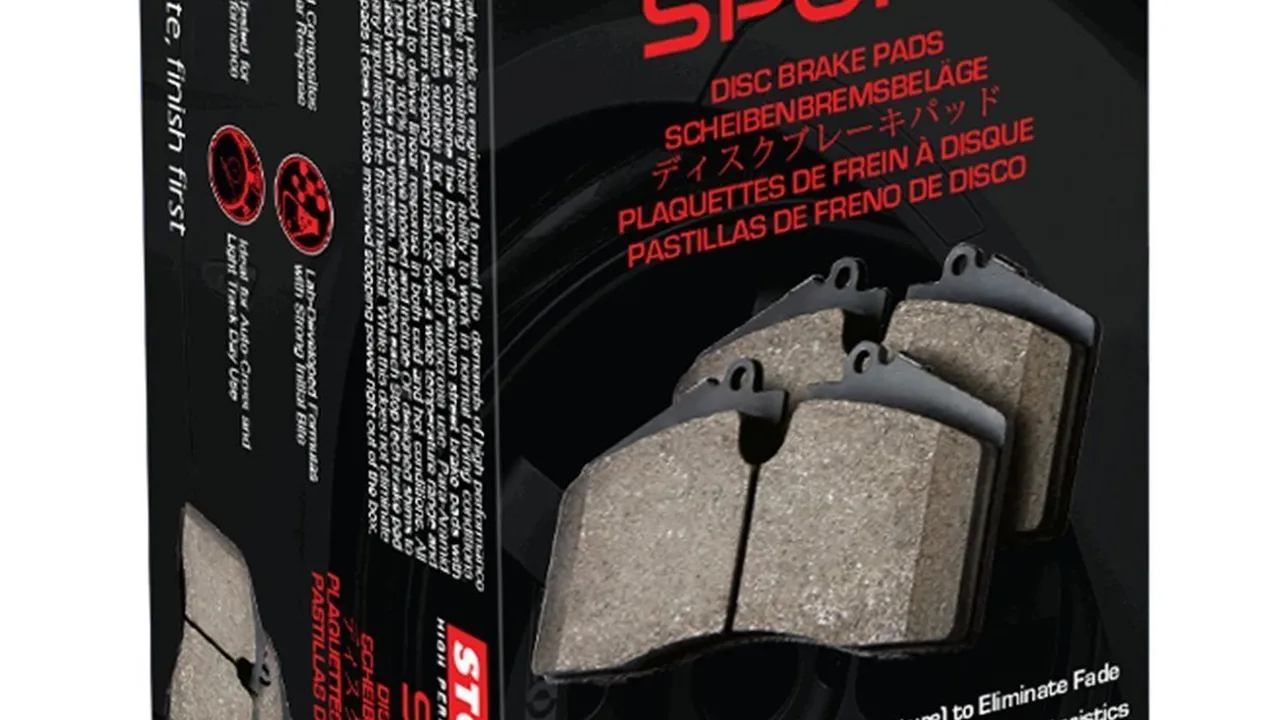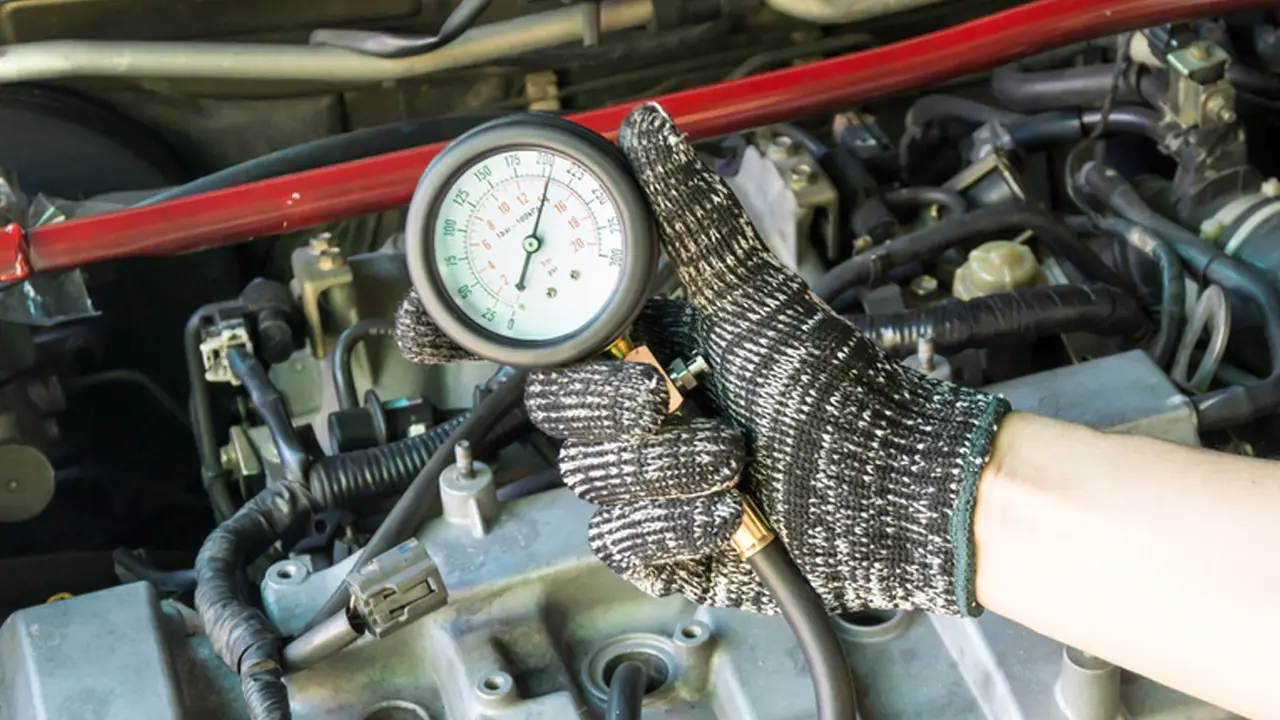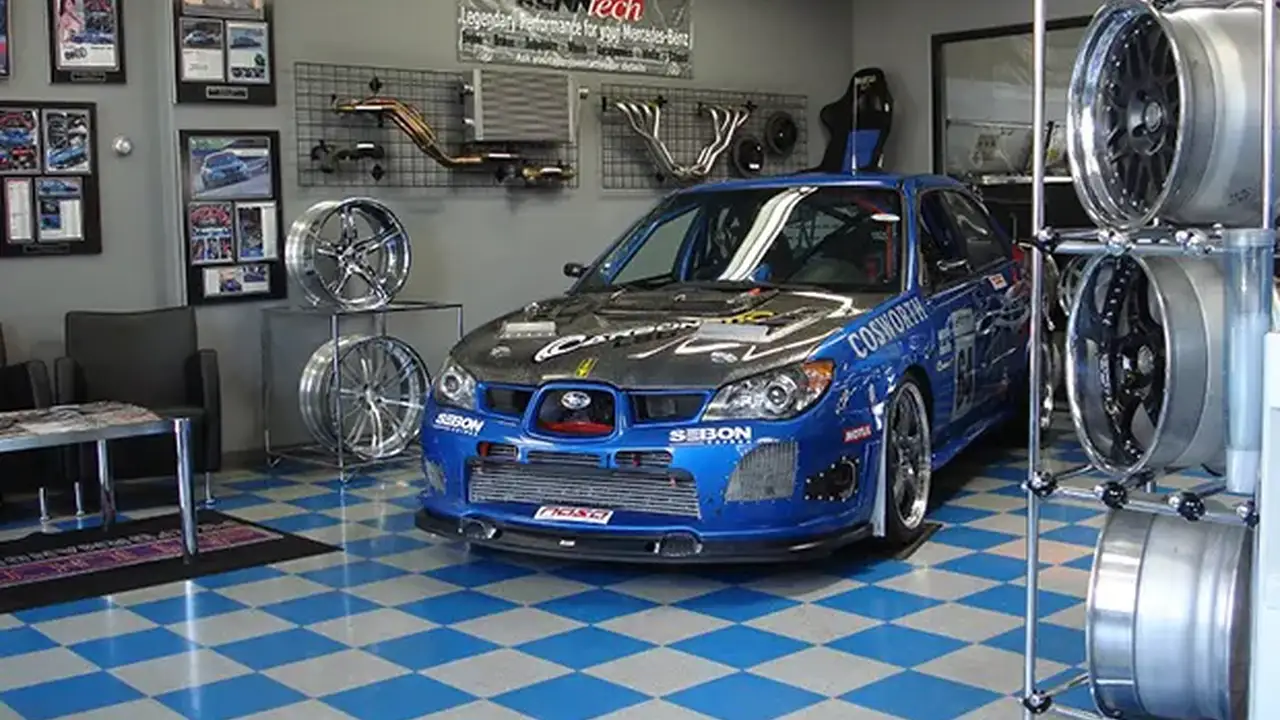Best Performance Brake Pads: Stopping Power You Can Trust
Upgrade your braking system for improved safety and performance. We review the best performance brake pads, comparing their stopping power, heat resistance, and rotor wear. Stop with confidence in any situation.

Understanding Performance Brake Pads The Basics
Okay, let's talk brakes. When you're pushing your car harder, whether it's on the street, at the track, or even just enjoying some spirited driving, your stock brake pads might start to feel a little… inadequate. That's where performance brake pads come in. They're designed to handle higher temperatures, provide better stopping power, and resist fade (that scary feeling when your brakes get soft after repeated hard stops).
But what makes a performance brake pad different? It all comes down to the friction material. Stock pads often use organic or semi-metallic compounds, which are fine for everyday driving but can struggle under more demanding conditions. Performance pads, on the other hand, typically use more aggressive formulations, including ceramic, metallic, or a combination of materials. These materials offer a higher coefficient of friction (meaning more stopping power) and can withstand higher temperatures without losing their effectiveness.
Think of it like this: your stock brakes are like wearing sneakers to run a marathon. They'll get you through it, but you'll probably be pretty uncomfortable. Performance brake pads are like wearing proper running shoes – they're designed for the task at hand and will help you perform your best.
Key Considerations When Choosing Performance Brake Pads
So, you're ready to upgrade. Awesome! But before you click "buy now," there are a few things you need to consider:
- Driving Style: Are you a daily driver who occasionally enjoys spirited driving, or are you a weekend track warrior? Your driving style will heavily influence the type of pad you need.
- Brake Rotor Compatibility: Some aggressive brake pad compounds can be hard on rotors. Make sure the pads you choose are compatible with your existing rotors, or consider upgrading your rotors as well.
- Dust and Noise: Performance brake pads often produce more dust and noise than stock pads. If these are major concerns, look for pads specifically designed to minimize these issues.
- Operating Temperature: Different pads are designed to operate within different temperature ranges. Choose pads that are suitable for the temperatures you'll be subjecting them to.
- Cost: Performance brake pads can range in price from relatively affordable to quite expensive. Set a budget and stick to it.
Top Performance Brake Pad Brands and Their Specialities
There are a ton of brands out there, each with their own strengths. Here's a quick rundown of some of the most popular:
- EBC Brakes: Known for their wide range of pads, from street performance to track-focused. Popular choices include the Yellowstuff and Bluestuff pads.
- Hawk Performance: Another well-known brand with a strong reputation for performance. Their HPS and HP Plus pads are popular choices for street and light track use.
- StopTech: Specializes in high-performance braking systems and components. Their Street Performance and Sport pads are excellent choices for improved stopping power.
- Power Stop: Offers a variety of brake pad options, including their Z23 Evolution Sport and Z26 Extreme Street Warrior pads, which are designed for street performance and aggressive driving.
- Akebono: While primarily known for their ceramic brake pads that minimize dust and noise, they also offer performance options like their EURO Ultra-Premium line.
Recommended Performance Brake Pads and Real World Scenarios
Alright, let's get down to specifics. Here are a few recommended performance brake pads for different driving scenarios, complete with pricing and use cases.
EBC Brakes Yellowstuff - Aggressive Street and Light Track Use
Use Case: You daily drive your car but also hit the track a few times a year. You want a pad that offers significantly improved stopping power over stock, without being too noisy or dusty for everyday use.
Features: High friction formula, suitable for street and track use, minimal brake fade, decent rotor life (compared to more aggressive track pads).
Product Specifics: The EBC Yellowstuff pads are a great all-around choice. They offer a good balance of performance, durability, and streetability. They can handle higher temperatures than stock pads, providing consistent stopping power even under hard braking. They do produce more dust than stock pads, but it's manageable. Noise levels are generally acceptable for street use.
Price: Around $80 - $150 per axle set, depending on the vehicle.
Hawk Performance HPS - High Performance Street
Use Case: You want a noticeable improvement in braking performance for street use, without sacrificing comfort or quietness. You're not planning on tracking your car regularly, but you want extra stopping power for spirited driving and emergency situations.
Features: Improved stopping power over stock, low dust and noise, gentle on rotors, excellent cold bite (works well even when cold).
Product Specifics: The Hawk HPS pads are designed for street performance. They offer a significant improvement in stopping power over stock pads, while still being relatively quiet and producing minimal dust. They're also gentle on rotors, which can save you money in the long run. The cold bite is excellent, meaning they work well even when they're cold, which is important for street driving.
Price: Around $60 - $120 per axle set, depending on the vehicle.
StopTech Street Performance - Balanced Street and Performance
Use Case: You're looking for a versatile pad that can handle both daily driving and occasional spirited driving. You want improved stopping power, but you also value low dust and noise.
Features: Good stopping power, low dust and noise, consistent performance, good rotor life.
Product Specifics: The StopTech Street Performance pads are a well-rounded option. They offer a good balance of performance, comfort, and durability. They provide improved stopping power over stock pads, while still being relatively quiet and producing minimal dust. They're also known for their consistent performance, even under moderate heat.
Price: Around $70 - $130 per axle set, depending on the vehicle.
Power Stop Z23 Evolution Sport - Street Performance with Carbon Fiber Infusion
Use Case: You want a street performance pad with a bit more bite than the Hawk HPS or StopTech Street Performance. You're okay with slightly more dust in exchange for improved stopping power.
Features: Carbon fiber infused ceramic formula, improved stopping power, low dust (compared to more aggressive pads), thermal scorched for a fast break-in.
Product Specifics: The Power Stop Z23 Evolution Sport pads use a carbon fiber infused ceramic formula for improved stopping power. They're a step up in performance from the Hawk HPS and StopTech Street Performance, but they do produce slightly more dust. They're also thermal scorched, which helps them break in quickly. This means you'll get consistent stopping power right away.
Price: Around $50 - $100 per axle set, depending on the vehicle.
Power Stop Z26 Extreme Street Warrior - Aggressive Street and Autocross
Use Case: You participate in autocross events or enjoy very aggressive street driving. You need a pad that can handle high temperatures and provide maximum stopping power.
Features: Carbon fiber infused ceramic formula, extreme stopping power, high temperature resistance, noise can be higher than other options.
Product Specifics: The Power Stop Z26 Extreme Street Warrior pads are designed for aggressive street and autocross use. They offer the most stopping power of the pads listed here, but they also produce the most dust and noise. They can handle very high temperatures without fading, making them a good choice for demanding driving situations. Be aware that they might be a bit too aggressive for daily driving for some people due to noise.
Price: Around $60 - $110 per axle set, depending on the vehicle.
Installation Considerations for Performance Brake Pads
Installing brake pads is a relatively straightforward process, but it's crucial to do it correctly. If you're not comfortable working on your car's brakes, it's best to take it to a professional mechanic. Here are some key things to keep in mind:
- Safety First: Always use jack stands to support your car when working on the brakes. Never rely solely on a jack.
- Proper Tools: Make sure you have the right tools for the job, including a brake caliper tool, wrench set, torque wrench, and brake cleaner.
- Cleanliness: Keep everything clean during the installation process. Dirt and debris can contaminate the brake pads and rotors, reducing their effectiveness.
- Brake Pad Bedding: Bedding your brake pads is crucial for optimal performance and longevity. Follow the manufacturer's instructions for bedding the pads. This typically involves a series of hard stops from moderate speeds.
- Inspect Rotors: Always inspect your rotors for wear and tear before installing new brake pads. If the rotors are worn or damaged, they should be replaced.
- Grease Contact Points: Apply a small amount of brake grease to the contact points between the brake pads and the caliper. This will help prevent noise.
Comparing Performance Brake Pad Materials
Let's dive deeper into the different types of friction materials used in performance brake pads:
- Ceramic: Ceramic brake pads are known for their low dust, low noise, and good stopping power. They're a good choice for street performance and daily driving.
- Semi-Metallic: Semi-metallic brake pads offer good stopping power and heat resistance, but they tend to produce more dust and noise than ceramic pads.
- Metallic: Metallic brake pads are designed for high-performance applications. They offer excellent stopping power and heat resistance, but they can be hard on rotors and produce a lot of dust and noise.
- Carbon Fiber Infused: Pads infused with carbon fiber aim to combine the best of both worlds - improved stopping power while keeping dust levels relatively low.
The Impact of Brake Pad Choice on Rotor Wear
The type of brake pad you choose can have a significant impact on rotor wear. Aggressive brake pad compounds can wear down rotors more quickly than milder compounds. If you're concerned about rotor wear, choose a brake pad that is known for being gentle on rotors, such as the Hawk HPS or StopTech Street Performance.
Dealing with Brake Pad Noise
Brake pad noise can be annoying, but it's often unavoidable with performance brake pads. Here are some tips for minimizing brake pad noise:
- Use Brake Grease: Apply a small amount of brake grease to the contact points between the brake pads and the caliper.
- Install Shims: Brake pad shims can help dampen vibrations and reduce noise.
- Bed the Pads Properly: Proper bedding can help reduce noise.
- Choose Low-Noise Pads: If noise is a major concern, choose brake pads that are specifically designed to minimize noise, such as ceramic pads.
When to Upgrade Your Brake Rotors
In some cases, upgrading your brake rotors along with your brake pads can be beneficial. Here are some situations where you might want to consider upgrading your rotors:
- Worn Rotors: If your rotors are worn or damaged, they should be replaced.
- Increased Performance Needs: If you're upgrading to more aggressive brake pads, upgrading to performance rotors can help improve overall braking performance.
- Track Use: If you're planning on tracking your car, upgrading to performance rotors is highly recommended.
Common rotor upgrades include slotted, drilled, or slotted and drilled rotors. These rotors are designed to improve cooling and reduce brake fade.
Maintaining Your Performance Brake Pads
To ensure your performance brake pads last as long as possible and perform their best, it's important to maintain them properly. Here are some tips:
- Regular Inspections: Inspect your brake pads regularly for wear and tear.
- Keep Calipers Clean: Keep your brake calipers clean and free of debris.
- Replace Pads When Necessary: Replace your brake pads when they reach the minimum thickness specified by the manufacturer.
Final Thoughts on Selecting the Best Performance Brake Pads
Choosing the right performance brake pads can significantly improve your car's stopping power and overall driving experience. Consider your driving style, budget, and desired level of performance when making your selection. Remember to prioritize safety and follow proper installation procedures. With the right pads, you'll be able to stop with confidence in any situation.
:max_bytes(150000):strip_icc()/277019-baked-pork-chops-with-cream-of-mushroom-soup-DDMFS-beauty-4x3-BG-7505-5762b731cf30447d9cbbbbbf387beafa.jpg)






